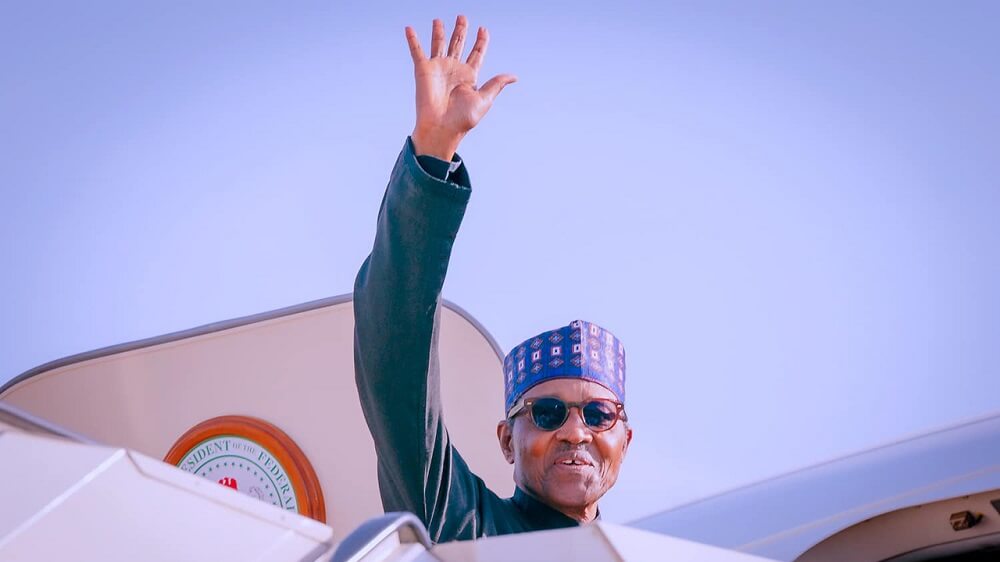From ‘The Other Room’ To ‘Twitter Ban’: Buhari’s Online Firestorms

When late ex-President Muhammadu Buhari returned to power in 2015 as a democratically elected president after ruling Nigeria as a military dictator in the 1980s, many had hoped for a new era of transparency, reform, and democratic progress.
The former president died at the age of 82 on Sunday in a London Hospital. He had governed Nigeria between May 2015 and May 2023.
But throughout his eight-year presidency, Buhari found himself at the center of numerous online firestorms, often sparked by his own remarks, policies, or government actions.
From viral gaffes to full-scale digital crackdowns, Buhari’s presidency was frequently tested by Nigeria’s increasingly vocal and internet-savvy population. In a country where social media has become a powerful tool for both activism and accountability, even a single statement could ignite nationwide outrage.
This article explores five of Buhari’s most controversial moments that played out online. The moments shaped public perception of his leadership and revealed deeper tensions between authority and digital freedom in Nigeria.
- “My Wife Belongs to the Kitchen” (2016)
Context:
While on an official visit to Germany, Buhari responded to criticism from his wife, Aisha Buhari who had questioned the direction of his government by saying. “I don’t know which party my wife belongs to, but she belongs to my kitchen, my living room, and the other room.”
Online Reaction:
The comment sparked global outrage, especially among women’s rights groups. The hashtag #TheOtherRoom trended on Nigerian Twitter, fueling debates around gender roles and patriarchy in African politics.
- The Twitter Ban (2021)
Context:
Twitter deleted a tweet from Buhari referencing the Nigerian Civil War in a threatening context against secessionist groups. The government retaliated by banning Twitter nationwide, citing “persistent use of the platform for activities capable of undermining Nigeria’s corporate existence.”
Online Reaction:
The move triggered massive backlash from both Nigerian citizens and the international community. Nigerians used VPNs to bypass the ban, while activists called the suspension an attack on free speech. Hashtags like #KeepitOn and #TwitterBan surged.
- #EndSARS and Government Crackdown on Protesters (2020)
Context:
The #EndSARS movement against police brutality gained national momentum in October 2020. Buhari’s delayed and muted response to the Lekki Toll Gate shooting—where peaceful protesters were allegedly shot by military personnel—fueled public anger.
Online Reaction:
His eventual address did not acknowledge the victims or accept responsibility, triggering hashtags like #EndBadGovernance, #LekkiMassacre, and global solidarity under #EndSARS. The online movement exposed governance flaws and amplified youth-led digital activism.
- Buhari’s Clone Rumor – “Jubril from Sudan” (2018–2019)
Context:
Conspiracy theories went viral, claiming Buhari had died during a medical trip to the UK and was replaced by a Sudanese impostor named Jubril. The theory trended for months on social media.
Online Reaction:
Instead of ignoring it, Buhari publicly addressed the rumor in Poland, saying:
“It’s real me, I assure you. I will soon celebrate my 76th birthday, and I will still go strong.”
The rumor, though baseless, became one of Nigeria’s most bizarre viral stories, highlighting mistrust in leadership and the potency of digital disinformation.
- Twitter Ban (2021–2022)
Context:
Following the Twitter ban and online dissent during #EndSARS, the Buhari-led government proposed tighter control over social media through the Social Media Bill (officially the Protection from Internet Falsehood and Manipulations Bill).
Online Reaction:
Nigerians rallied online under hashtags like #SayNoToSocialMediaBill, accusing the government of attempting to muzzle free speech and suppress youth voices. Activists warned it could create a “digital dictatorship.”
These controversies reflect the tension between authoritarian impulses and digital resistance during Buhari’s presidency. From sexist remarks to social media crackdowns, each controversy sparked nationwide digital activism, showing how online platforms became a battlefield for civic expression, especially among Nigeria’s youth.
From ‘The Other Room’ To ‘Twitter Ban’: Buhari’s Online Firestorms is first published on The Whistler Newspaper





